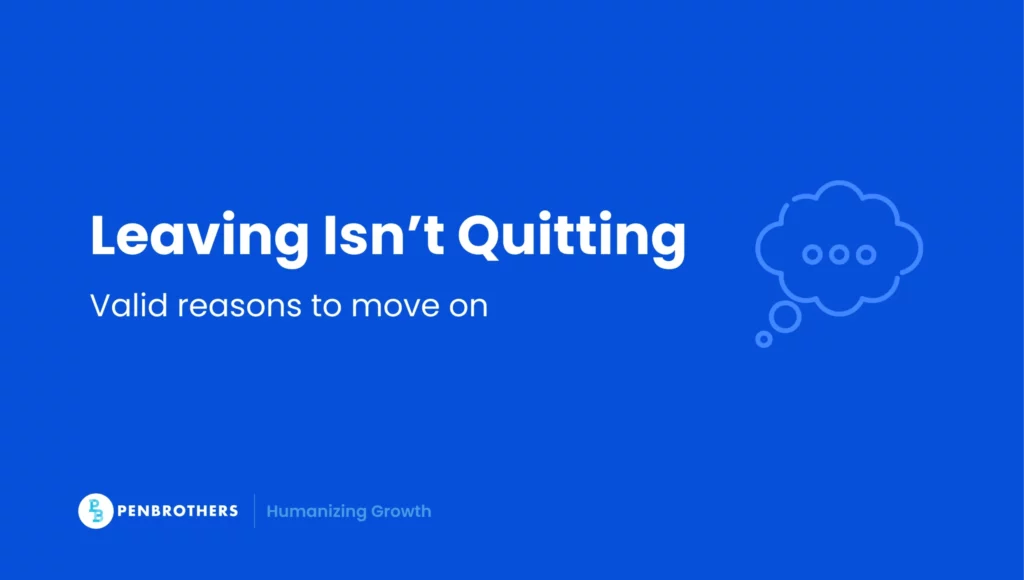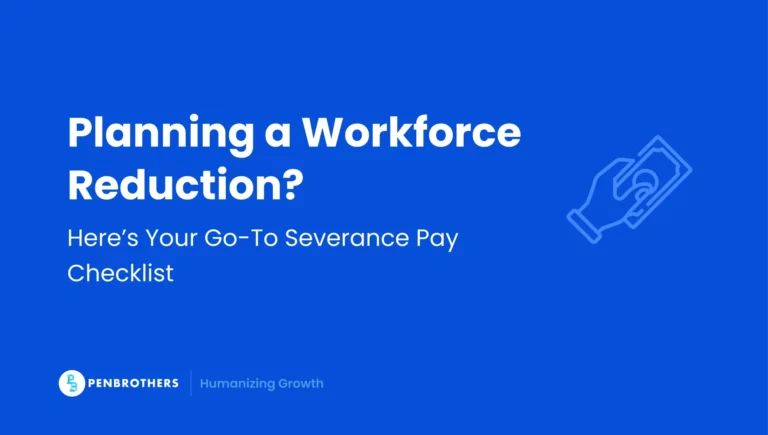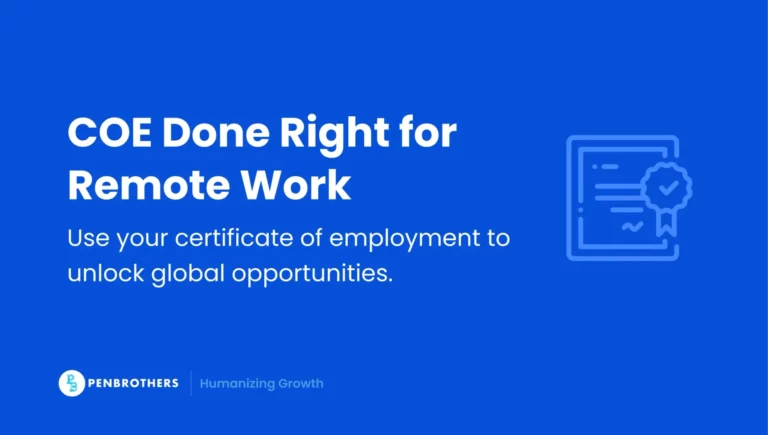Quitting your job isn’t a failure. It’s often a strategic move that seasoned professionals make to stay ahead. In today’s career landscape, knowing when to walk away can mean the difference between stagnation and meaningful growth.
This guide breaks down seven strong, valid, and often overlooked reasons to resign through the lens of real career progression, not social media noise. Whether you’re navigating burnout, seeking better leadership, or rethinking your values, this article helps you evaluate whether it’s time to move on, and how to do it without burning bridges.
1. You’ve Outgrown the Role, But There’s No Path Forward
Many employees wait too long, hoping their company will create the growth opportunities they need. But if your role hasn’t evolved in a year or worse, you’re still doing what you were doing two years ago. It’s a sign your career is plateauing.
Expert insight: Companies that promote based solely on tenure or headcount rarely reward strategic thinkers. If you’re continuously mentoring others, leading initiatives, or outperforming peers without corresponding growth or recognition, it’s time to reassess. You’re not disloyal for leaving. You’re managing your potential.
What to do next: Initiate a conversation about career development. If you’re met with vague promises, update your portfolio and reconnect with your network.
Related: Best Answers to “Why are You Looking for a New Job?”
2. You’ve Lost Trust in Leadership
People don’t leave companies. They leave managers. But it’s not just about bad bosses. If executive decisions consistently lack transparency, fairness, or foresight, you’re stuck in a system that won’t reward smart work.
Expert insight: A lack of leadership credibility often shows up subtly, like repeated layoffs without explanation, performative DEI efforts, or shifting priorities with no clear rationale. Trust erosion is cumulative. Once gone, it rarely returns.
What to do next: Document concerning patterns. If they continue despite feedback or engagement surveys, start planning your transition while protecting your well-being and workload.
Related: How to Quit Your Job Gracefully
3. The Company Culture Rewards Burnout, Not Balance
Being busy isn’t a badge of honor. If overwork is normalized, praised, or worse, expected, you risk long-term career damage.
Expert insight: Burnout often masquerades as ambition until your physical health, relationships, or motivation take a hit. The problem isn’t your resilience. It’s a workplace that penalizes sustainability.
What to do next: If your job demands compromise your life outside of work, and internal attempts to push for healthier norms are dismissed. It’s time to prioritize your longevity, not loyalty.
Related: Questions You MUST Ask HR During Your Interview
4. Your Work Is Undervalued or Invisible
Recognition isn’t about ego. It’s about clarity on your value. If others routinely take credit for your work, or your impact isn’t reflected in compensation or decision-making, you’re at risk of professional invisibility.
Expert insight: Being “quietly reliable” is only a strength in healthy cultures. In toxic environments, it can mean being passed over for promotions, raises, or critical projects.
What to do next: Track your achievements. If recognition remains performative or politics consistently trump merit, explore roles where contributions are visible and rewarded.
5. The Industry or Company Is in Decline
Sometimes, quitting is less about your role and more about external market realities. If your company is losing ground, bleeding top talent, or facing frequent restructuring, it may be time to make a proactive exit.
Expert insight: Smart professionals don’t wait for severance. They monitor signals: declining investor confidence, regulatory risks, missed revenue targets, or quiet hiring freezes. Loyalty doesn’t pay the bills when a company folds.
What to do next: Start positioning yourself in a stronger market. Upskill for where the industry is headed, not where it’s been.
Related: Which Jobs are AI-Proof?
6. Your Values No Longer Align
As you grow, so do your values. Maybe you want more purpose-driven work. Maybe you’ve outgrown the startup hustle. Or maybe your company’s actions don’t match its stated mission.
Expert insight: Value misalignment doesn’t always show up as a scandal. It could be the subtle disconnect between what you care about and what leadership actually rewards. Over time, this creates disengagement and resentment.
What to do next: Revisit your personal career compass. List what matters to you now: autonomy, impact, flexibility, and compare it to what your job actually delivers.
7. You’re Staying Only for Security, But It’s Holding You Back
It’s normal to crave stability, especially during economic uncertainty. But if fear is your only reason to stay, you’ve already mentally quit.
Expert insight: There’s a hidden cost to staying in the wrong job too long: skill atrophy, lost confidence, and a stale network. The longer you stay stuck, the harder it gets to pivot with leverage.
What to do next: Create a 90-day action plan to explore what’s next. Set up informational interviews, build a runway, and shift from reactive to strategic thinking.
Before You Resign: What to Ask Yourself
Quitting doesn’t always mean you’ll be happier right away. Consider these questions before making your move:
- Have I had honest conversations with my manager about my concerns?
- Is this job still helping me grow, even in ways that aren’t obvious?
- Do I have a financial cushion or a solid next step lined up?
- Am I making this decision from clarity, not burnout or spite?
Pro tip: Document your wins and keep your resume and LinkedIn updated even before you quit. Future-proofing is not disloyalty. It’s smart career management.
Related: How to Write a Resignation Letter
Final Thoughts: Leaving Is Part of Leading Your Career
Quitting a job is not a red flag. It’s a sign of self-awareness, especially when done with intention. If you’re no longer growing, valued, or aligned with your company, leaving might be the most strategic move you can make.
Here’s the truth: Great careers aren’t built on sticking it out at all costs. They’re built on knowing when to move toward something better.
Ready to Move On?
If this article resonated, start by reflecting on your own reasons. Are you staying for the right ones, or just avoiding a hard but necessary step? Bookmark this guide, share it with a friend, or use it as a checklist in your next career conversation.Need help with your exit strategy or job search? Let’s talk. You can also check open roles that have competitive compensation and flexible work setups.
Bonus Section:






